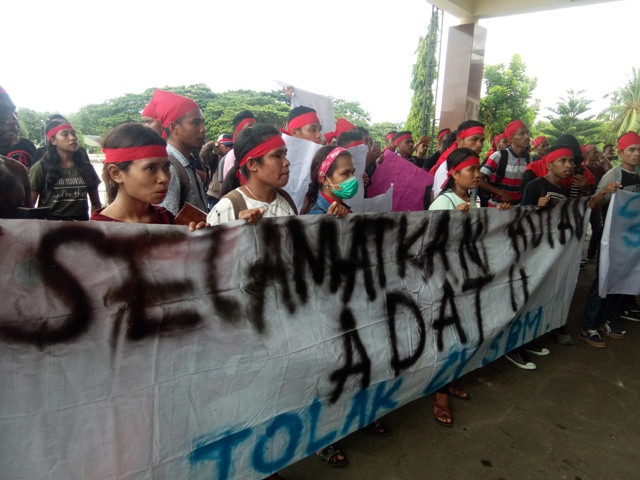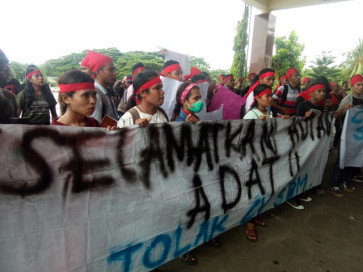Popular Reads
Top Results
Can't find what you're looking for?
View all search resultsPopular Reads
Top Results
Can't find what you're looking for?
View all search resultsProtecting Southeast Asia's land and environmental defenders
ASEAN urgently needs to adopt its Environmental Rights Framework to break the pattern of blatant impunity for perpetrators fueling an endless cycle of violence and threats against land and environmental defenders amid weak and ineffective law enforcement in the region.
Change text size
Gift Premium Articles
to Anyone
S
outheast Asia is a region rich in biodiversity and resources, but also one where land and environmental defenders (LEDs) face significant challenges. It might be slightly different from the situation faced by our counterparts in Latin America, where a disturbingly high number of killings are taking place.
However, it does not make the Southeast Asian LEDs immune to physical violence, intimidation, and legal harassment.
An opportunity now presents itself to Southeast Asian LEDs in the ongoing efforts to develop the ASEAN Environmental Rights Framework, which was initiated by the ASEAN Intergovernmental Commission on Human Rights (AICHR) in collaboration with United Nations agencies back in 2021.
The framework is widely anticipated and particularly expected by Southeast Asia’s civil society to be a comprehensive approach that could incorporate existing environmental agreements and explicitly lead to the recognition of the right to a healthy environment and the protection of its defenders in the region.
The recent kidnapping of Sobartua Siallagan, an indigenous leader in Toba, North Sumatra, by Indonesian police allegedly linked to the pulp and paper industry, and the abduction of Jonila Castro and Jhed Tamano, two activists volunteering with fishing communities in Manila Bay who oppose the reclamation project in the Philippines, are just the two latest vivid examples of the dangers faced by LEDs in the region.
According to a 2022 report by Global Witness, at least 16 environmental defenders were killed in Asia, with the Philippines being the worst offender.
The situation hasn't improved since. Last year, police fatally shot Gijik, an indigenous Dayak, and injured two others when security forces were deployed on behalf of a palm oil company in Central Kalimantan (Oct. 8, 2023, Kaoem Telapak). In Vietnam, Mongabay reported that Hoang Thi Minh Hong, founder of environmental advocacy group CHANGE, was targeted and charged with “tax evasion” or “appropriation of information” amid a wave of closures of environmental organizations.



















